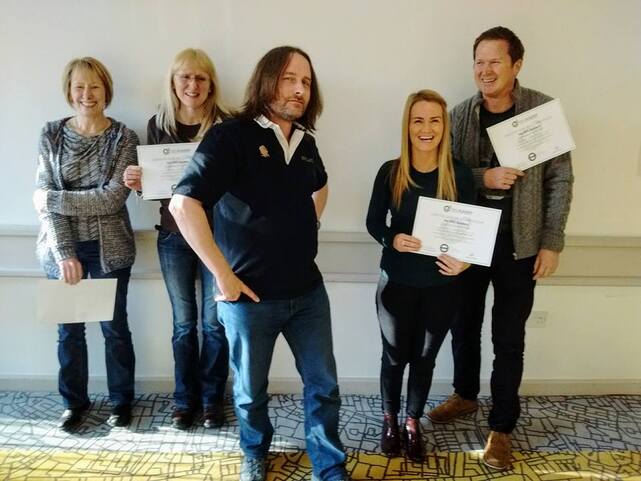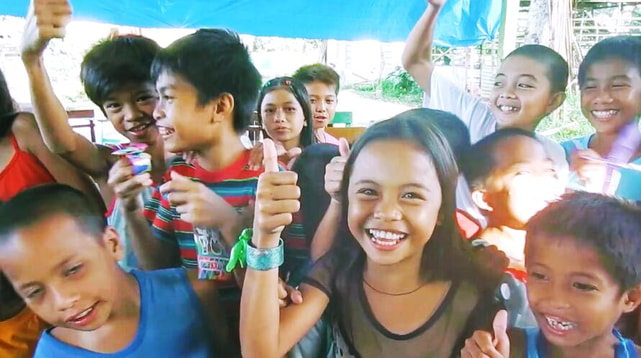|
An organisation I work with is moving office this weekend. I spoke with one person today who commented that he feels sad to leave the building. When I invited him to elaborate, he explained that he has worked with the organisation for 15 years. He has seen and experienced lots of changes and yet this, somehow, feels like the end of an era in the organisation’s life and in his life too. The change from one building to another feels like an important physical and psychological transition.
There’s an idea in developmental psychology that, from an early age, during times of change we can attach meaning to objects that provide a sense of comfort and security (see, for instance, ‘More Than Just Teddy Bears’: https://www.psychologytoday.com/blog/the-guest-room/201407/more-just-teddy-bears). We could think of this as a bit like a person who clings onto a piece of drift wood when lost at sea. The wood can keep the person afloat and reduce the feeling of (total) isolation. If the piece of wood is from the broken ship, it can provide a sense of psychological connection with what-was before. Holding onto the wood can provide a psychological sense of safety. It isn’t just me vs endless, boundary-less water. I am with this object, the log, and the log is with me. The log, by keeping me afloat, can provide me with a psychological sense of hope that I will get through this. In this sense, the log can take on a psychological significance for me that lays far beyond the log itself. If we apply this insight during change in people’s and organisations’ lives, we can look out for things – whether, say, objects or routines – that people or groups now imbue with special significance. It could be, for instance, a photo or plant on the desk, a habitual conversation at coffee break, whatever people need to provide (enough) sense of security as they move forward. To offer support in the midst of this, avoid the temptation to label as ‘resistance’ and ask simply, ‘What do you need?’
86 Comments
I took part in an intensive Teaching English as a Foreign Language workshop at the weekend. It forms part of a longer course that leads to a TEFL qualification. The tutor, John Nelson, was inspiring and experienced as a teacher and offered great insights, ideas and challenge in a spirit of support. I noticed how valuable it felt to have a tutor, a mentor, a leader with us on our learning journey.
John wasn’t simply a detached expert who stood and pointed us in the right direction. He was committed to ensuring that we were able to grow and succeed in our work. He engaged with us – tuned into where we were, what mattered to us, what we could already do well, what we were struggling with or could improve – and helped moved us forward towards where we wanted to be. At one point, John role-modelled a teaching session by enabling us to use basic greetings in an alien foreign language from scratch. At another, he gave us very specific feedback. I discovered that I can explain complex concepts simply…and that I can improve my teaching by engaging participants creatively in conversation around a topic first. I have grown in awareness, ability and confidence. So what are some lessons here for leaders, trainers, facilitators, mentors and coaches? The points that stand out for me are: (a) intention – a commitment to helping others to grow; (b) relationship – working with others as people, not as objects to be done to; (c) expertise – crafting and using what we have to move others forward and (d) freedom – a willingness to experiment, laugh and play! What sense do you make of categorical, definitive statements? For example, ‘This book is excellent.’ ‘That person is annoying.’ Could it be that such truth claims say more about the person making them, perhaps also about the beliefs and values of the cultural worlds they inhabit, than who or what they are referring to? In coaching, what could they reveal about embedded, hidden and often subconscious assumptions, perspectives, constructs, needs, hopes, fears and expectations?
I had a difficult conversation tonight. Some close neighbours have 2 dogs that they leave outside barking and a son that kicks his football against the wall, fence and bins. The noise, the persistent intrusive disturbance, drives me crazy. I tried to tackle it in polite conversation but it ended badly. The neighbour was angry and frustrated with me and slammed the door with a loud bang as the conversation came to an abrupt end. I walked away feeling shaken, disappointed and stressed. It is easy to imagine the kind of statements we could now be making about each other inwardly and, perhaps, outwardly in conversation with others. ‘That bloke is so inconsiderate!’ ‘That guy is so over-sensitive.’ It’s as if the statements we project convey objective, incontrovertible truths about the other, statements of what-is rather than statements of subjective opinion, of cultural possibility and, at a deeper level, of veiled revelations of how we are feeling and the pain and hurt of unmet need. I worked with one leader, Richard Marshall, who took this principle very seriously. Every time I or another made a definitive statement, he would challenge us to personalise it. So, for example, ‘This meeting is a waste of time’ would be reframed as something like, ‘I feel frustrated in this meeting and would prefer to do X’. The effect was transformational. It surfaced underlying values and needs and made them explicit. So, is my neighbour unreasonable? I don’t know. I just need peace and quiet. We ask questions for all kinds of reasons. For example: sometimes it’s for information, e.g. ‘Which button do I push to turn on the photocopier?’ Sometimes it’s to think out loud, e.g. ‘Hmmm…how will I get home now the train has been cancelled?’ At times it can be to look clever or put someone else on the spot, e.g. ‘How about we compare my grades to yours?’ At other times it’s to stimulate reflection and learning in people or groups, e.g. ‘What do you think is really going on here?’
Influential teachers such as Jesus and Socrates excelled in the latter, posing questions to stimulate awareness and insight. Conrad Gempf wrote a whole book on Jesus’ approach called, Jesus Asked (2003), drawing attention to how often Jesus posed questions – including in response to other people’s questions. There’s something about great questions that can strike deep into our soul, our psyche, our assumptions and beliefs. They can detonate, evoke, provoke, create movement, shift. A question I may pose is, ‘What’s the question behind the question?’ I may use it in leadership, coaching, training and facilitation if I sense there is something deeper, unspoken, hiding or struggling to surface. Sometimes it moves the focus from an issue to a person, making it person-al in the best possible sense. For example: ‘How can we improve people’s performance?’ could be reframed as, ‘How can I know that what we’re doing is making a difference to what’s important here?’ Another question I may pose is, ‘What do you need?’ In many cultures, we are conditioned to be and to appear confident, capable and self-sufficient. To admit to needing someone or something can feel like a confession of guilt, weakness or failure. In this context, addressing the need that lays behind a question can be transformational. For example: ‘How can we improve people’s performance?’ could be reframed as, ‘How can I meet my need to feel wanted, needed and successful here?’ As we walked through the village we were met by wide smiles and eyes full of vivid curiosity. Brightly-coloured clothing hung outside of wooden huts to dry in the sun. Rice and coconut lay on the ground, apparently there to dry too. We had travelled by plane, ship, tuk tuk and boat, meandering through lush green jungle and rice fields to reach this place in Samar, Philippines. The children were excited having waited 3 hours for us to arrive. A rich sense of anticipation felt tangible in the air.
This was my first experience of working with such a large group of children. 120+ turned up, ages ranging from 3 to 12. We were there 2 weeks ago to inspire the children with English language, lead play activities, share about Jesus and provide nutritious food. The children were eager to learn, to spend time with this strange, tall, white alien and his inspiring, energetic Filipina counterpart – and to have fun. I don’t think I’ve ever encountered such wild, sustained enthusiasm in a group. We chose a theme each day and, at the start, invited the children to teach me some Waray, their local language. The teacher became learner and the students became teachers. The kids loved it, scoring my pronunciation by signalling thumbs up if I did well, thumbs sideways if I needed to improve, thumbs down if I was unintelligible! After each phrase the children jumped up and down with excitement, big smiles and waving their thumbs in the air. A true spirit of encouragement. This simple idea and approach gave the children real confidence to play and to practise with English language. They had seen my vulnerability, willingness to try, imperfect attempts and friendly laughter. It enabled them to give every activity we tried their best shot, encouraging each other when we-they did well and forgiving each other when we-they didn’t. We were committed to learn together, to travel an exciting journey of discovery together, and that made such a difference. Some years ago, I had the privilege of editing a ground-breaking book by Wai K Leong on coaching in an Asian cultural context. My interest and curiosity had had been sparked by some intriguing issues and dynamics I had encountered in my own attempts to coach people from countries including Singapore, Indonesia, Myanmar and Vietnam – with mixed success. More recently, I was invited to coach someone from the Philippines and the same issues arose. What I have encountered here tests the limits of Western coaching models and raises important questions for cross-cultural work.
Take, for example, a typical Western goal-orientated coaching question such as: ‘What do you want to do in the future?’ In the West, it sounds simple and straightforward… yet the question itself is loaded with implicit cultural assumptions about, e.g. aspiration, autonomy and time. Autonomy is particularly significant in an Asian context where cultural beliefs about the individual in relation to e.g. authority, responsibility, family, interdependence and relationships are absolutely fundamental. In light of this, I have been exploring and experimenting with alternative Asian cultural framings. I tried a shift away from, ‘What do you want to do in the future?’ and towards a different pattern of questions: ‘What is your greatest hope for your family?’, ‘What is your family’s greatest hope for you?’, ‘What is your greatest hope for your own future?’, ‘How might you work through any differences to find a solution that is acceptable for both your family and you?’ The client’s face lit up and she smiled: ‘Now you are starting to understand Asian culture!’ I’m very interested to hear from others who have experienced cross-cultural coaching. How did you do it – and what did you learn? |
Nick WrightI'm a psychological coach, trainer and OD consultant. Curious to discover how can I help you? Get in touch! Like what you read? Simply enter your email address below to receive regular blog updates!
|






 RSS Feed
RSS Feed